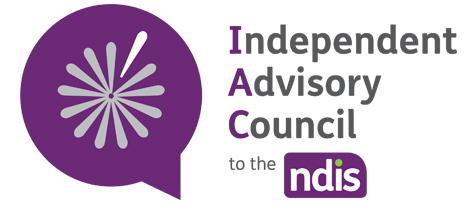IAC meeting bulletin, 10-11 December 2024
The Independent Advisory Council (IAC) to the National Disability Insurance Scheme (NDIS) met on 10-11 December 2024 at a hybrid meeting held in Brisbane. Members discussed the progress on their advice to the Board of the National Disability Insurance Agency (NDIA), including its advice on palliative care. The meeting also included discussions on:
what members have heard in their communities
the work of the NDIS Quality and Safeguards Commission (NDIS Commission)
the NDIA’s work on the justice transition project, participant pathways, and improving experiences for First Nations people in the NDIS.
Principal Member acknowledgments
Ms Leah van Poppel, IAC Principal Member, acknowledged the IAC’s membership will change in the new year and noted it is anticipated the Minister will make announcements towards the end of the year.
She highlighted that Ms Sylvana Mahmic and Adjunct Associate Professor Jennifer Cullen AM will step down from the IAC at the end of 2024. Ms van Poppel praised the members’ important advocacy and contribution to the IAC over 11 years.
Ms van Poppel also welcomed the NDIA’s Board Chair, Chief Executive Officer (CEO), and Deputy CEO Service Design and Improvement.
IAC advice progress
The IAC discussed the scope of advice it is progressing about palliative care noting participants over 65 who are ineligible for NDIS are out of scope. Concerns about the relationship between palliative care and euthanasia laws were noted, with a request to clarify this as out of scope.
The IAC was updated about the NDIA’s work on Agency responses to their advice about ‘Enhancing behaviour supports in the NDIA’ and ‘Participants who are ageing’. These responses will be finalised by the first quarter of 2025, at which time the advice reports and Agency responses will be sent to the NDIA Board.
What members have heard in their communities
IAC members reported key issues raised by NDIS participants, families, carers, and providers. Administrative challenges, particularly around invoice uploads for self-managers, are creating stress for participants and their supporters. There is anxiety in the community about NDIS supports that are ‘in and out’ as part of legislation changes and the potential loss of self-management rights due to errors.
Concerns were also raised about short term accommodation (STA) closures, especially in regional areas, which limit choice and control for families. Members also highlighted difficulties in accessing specialist disability accommodation (SDA) and the lack of affordable housing, with families facing delays and financial barriers.
First Nations communities, particularly in remote areas, face barriers like limited access to respite and high travel costs for specialised equipment. Members also reported community confusion over recent updates to art and music therapy funding.
Members raised concerns about the lack of disability considerations in youth justice policies, particularly for First Nations children. Additionally, some participants are struggling to navigate complex pathways due to inconsistent information and unclear eligibility criteria.
There is call for clearer communication from the NDIA on policy changes, reassessments, and eligibility processes. Participants need accessible guidance to reduce anxiety and help them navigate the NDIS more effectively.
NDIS Commission update
The NDIS Commissioner introduced themselves and provided an update on the regulatory reform project. The Commissioner acknowledged the IAC’s expertise and expressed a strong interest in ongoing collaboration.
IAC feedback focused on the pressure of compliance timeframes on providers and concerns about penalties discouraging support for participants with high needs. Members also highlighted the need for accessible reforms for diverse communities and improved auditor competency, including the inclusion of people with disability in auditing teams.
Members noted using artificial intelligence tools for better understanding of policies, supporting remote services, and building trust with First Nations communities through partnerships. Members also suggested quality improvement plans, self-assessments, and drawing from sectors like early childhood care. They also stressed the importance of protecting whistleblowers and keeping data confidential.
NDIA updates on key work
Justice transition work
The NDIA gave an overview of the outcomes of its Justice Transition Project. Members highlighted that state/territory legislation and data sharing remain barriers for collaboration and the need for better education on NDIS processes. Members noted the current low representation of First Nations staff in justice planning roles and the impact that having limited interpreters for Aboriginal sign languages has on justice outcomes. Members also raised the issue of systemic racism in justice outcomes for First Nations people.
Participant pathways
The NDIA gave an update on work to improve the NDIS participant pathway. Members emphasised the need for NDIS reforms to align cohesively, focusing on the participant experience and the integration of various reforms like navigation and home and living.
Special attention was given to First Nations communities and those with brain injuries, highlighting the need for flexible tools and assessments to address their unique challenges. Additionally, members stressed the importance of clear communication to avoid unnecessary transitions to aged care for older participants.
First Nations
The NDIA’s First Nations strategy draft has been tabled with NDIA’s Board and SLT, receiving positive feedback. The NDIA acknowledged the IAC’s contribution to the strategy, which will be launched in March 2025.
Recruitment for the IAC’s First Nations Reference Group is almost complete and offers will be made shortly to 10 successful applicants. Their first meeting will take place in early 2025.
More information on the IAC
The IAC will next meet on 13 February 2025. Find out more about IAC meetings and bulletins at the IAC website.
Information in Easy Read
